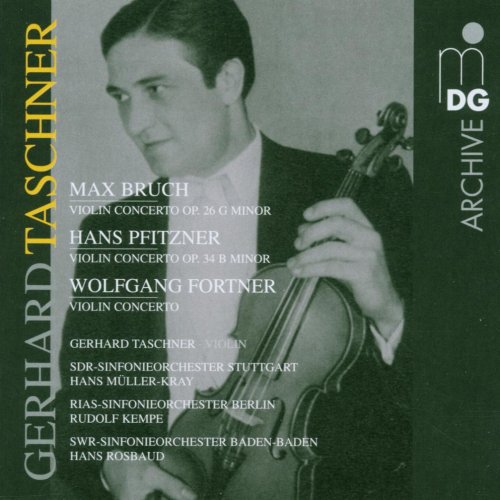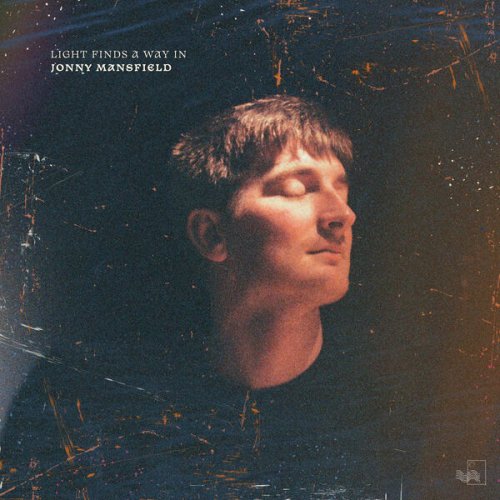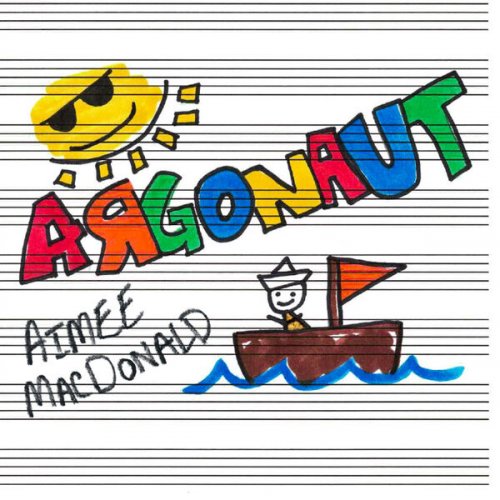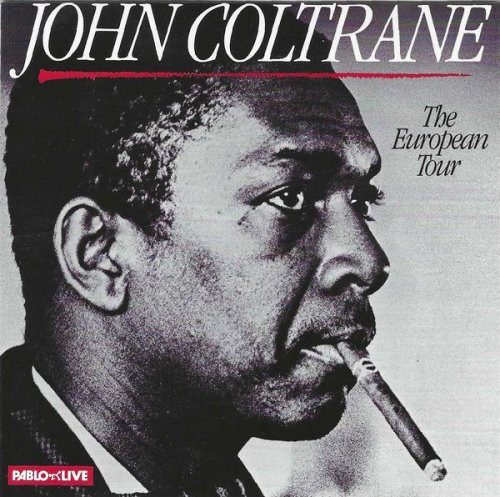Gerhard Taschner, Hans Müller-Kray, Rudolf Kempe, Hans Rosbaud - Bruch, Pfitzner & Fortner: Violin Concertos (2007)

Artist: Gerhard Taschner, SDR-Sinfonieorchester Stuttgart, Hans Müller-Kray, RIAS-Sinfonieorchester Berlin, Rudolf Kempe, SWR-Sinfonieorchester Baden-Baden, Hans Rosbaud
Title: Bruch, Pfitzner & Fortner: Violin Concertos
Year Of Release: 2007
Label: Musikproduktion Dabringhaus und Grimm
Genre: Classical
Quality: flac lossless (tracks)
Total Time: 01:14:10
Total Size: 199 mb
WebSite: Album Preview
TracklistTitle: Bruch, Pfitzner & Fortner: Violin Concertos
Year Of Release: 2007
Label: Musikproduktion Dabringhaus und Grimm
Genre: Classical
Quality: flac lossless (tracks)
Total Time: 01:14:10
Total Size: 199 mb
WebSite: Album Preview
01. Concerto for Violin and Orchestra in G Minor, Op. 26: I. Allegro moderato
02. Concerto for Violin and Orchestra in G Minor, Op. 26: II. Adagio
03. Concerto for Violin and Orchestra in G Minor, Op. 26: III. Finale. Allegro energico
04. Concerto for Violin and Orchestra in B Minor, Op. 34: I. Lebhaft, energisch
05. Concerto for Violin and Orchestra in B Minor, Op. 34: II. Langsam, sehr getragen
06. Concerto for Violin and Orchestra in B Minor, Op. 34: III. Gemächlich
07. Concerto for Violin and Large Chamber Orchestra: I. Allegro con brio
08. Concerto for Violin and Large Chamber Orchestra: II. Canzone. Andantino
09. Concerto for Violin and Large Chamber Orchestra: III. Introduction e Rondo. Molto Allegro - Allegro poco Scherzando
Taschner’s star is in the ascendant. I’ve written about him quite extensively here and he’s been eloquently served by Tahra (see reviews of discs 350/51, 342 and 461), as well as by the German branch of EMI. But perhaps the most relevant recent release is MDG’s own previous issue of the Beethoven and Fortner concertos (see review) conducted by Solti and Furtwängler respectively, because it now offers us two views of the Fortner concerto, a work Taschner made very much his own. In addition we have a sizeable bonus in the equally seldom performed Pfitzner concerto, and the addition of the Bruch G minor.
This Fortner with Rosbaud was given about ten months after the Furtwängler performance. It’s tighter all round, most especially in the slow movement, and one senses Rosbaud’s far greater familiarity and experience with the idiom. Furtwängler sees things in a more massive and marmoreal way and the gloomier recording quality serves even more to exaggerate that conception. Whereas Rosbaud, one of the great unsung accompanists, evokes the Stravinskian elements with greater precision and athleticism. The martial and threnodic elements are, however, rather more deeply etched in the older performance. But again, to counterbalance these positive and negative qualities, with Rosbaud rhythms are altogether more sharply pointed and the neo-classicism is more pronounced. The music ambles rather than lurches, which it does have occasion to do in the earlier performance, fine though that was on its own terms. As for Taschner he is more obviously expressive with Furtwängler, whose concertmaster he had been in Berlin, but plays with tremendous panache and silvery intensity in both performances.
The Pfitzner is an odd one. For years the only recording was that by Susanne Lautenbacher with the Philharmonia Hungarica under Gunther Wich – though that’s now changed as Saschko Gawriloff has recorded it for CPO. It’s an energetic but four square late Romantic effusion. Some of the writing is very low and dark though there are also moments for the pirouetting soloist. Some Tristan elements add gravity to the slow section though it remains stubbornly unmemorable thematically, despite the best attentions of no less than Kempe at the helm. The more lightly swinging patterns in the final section are genuinely attractive though some empty passagework spoils things – unusually because this isn’t a bombastic work. Taschner plays excellently; he’s faster and more virtuosic than Lautenbacher (I’ve not heard the Gawriloff recording).
The Bruch reveals some of the limitations of his playing, ones I’ve referred to in my previous reviews. He lacks optimum tonal breadth and makes the occasional exaggerated gesture that sounds out-of-place. Some of the playing sounds impulsive in the Furtwängler manner – rhythmic vitality pushing toward excess. Müller-Kray can be rather gruff.
It’s for the Fortner and Pfitzner recordings that collectors will want this latest Taschner disc. When the playing is so fine we can luxuriate in Rosbaud-conducted Fortner and Kempe-directed Pfitzner.




![Bryan Ferry - Bitter-Sweet (2018) [Hi-Res] Bryan Ferry - Bitter-Sweet (2018) [Hi-Res]](https://www.dibpic.com/uploads/posts/2018-11/1543491501_folder.jpg)
![RAS - Rød i Blå (2025) [Hi-Res] RAS - Rød i Blå (2025) [Hi-Res]](https://www.dibpic.com/uploads/posts/2025-12/1765847447_s09xuo23tcu1a_600.jpg)


